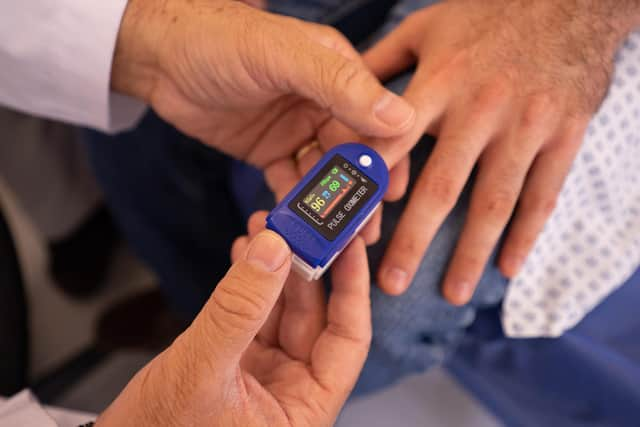Scotland needs an independent fact-checking service to ensure science is not being misrepresented – Professor Niamh Nic Daéid
To learn from this unique experience, the Royal Society of Edinburgh established the Post Covid-19 Futures Commission with the aim of using knowledge to power Scotland’s positive recovery.
For 18 months, the data, evidence and science working group, which I chaired, has explored how we could enhance Scotland’s ability to effectively use these three elements to prepare and respond to large-scale challenges, with the aim to enhance decision-making and our well-being. To do so, we explored public understanding of the terms “data, evidence and science” and discussed the help or hindrance they have on our actions.
Advertisement
Hide AdAdvertisement
Hide AdWe based our findings on conversations with varied groups to ensure we had an input from diverse voices and real experiences. We used workshops and specific outreach, including to young people and children who are often missed out, to gather a wealth of insight.
We included perspectives from journalists and scientific advisers, who deliver key messages and who make and enable decisions. Within every discussion, one strong theme emerged: the need for clear, inclusive communication that engaged people across all sectors of society.
To build a basis for future improvement, we developed four recommendations for Scottish government and other bodies to consider.
Firstly, a national conversation is needed to ensure transparency, inclusivity and engaged participation in the gathering of personal data. How do we collect, store and ensure the security of data, as well as provide confidence that it will be used only for the public good?


Secondly, we should create a mechanism to improve education about science, increasing the public’s understanding of what science is, how it works, and what its benefits and limitations are. Understanding how science works enables people to understand the importance of the data and evidence which underpins that science and empowers us to make informed decisions.
Thirdly a series of “science into practice” sessions should be created to increase awareness amongst groups such as special advisers, politicians or journalists who use data. This goes hand in hand with developing science communication skills for scientists and experts so that they can explain science, data and evidence in understandable terms across many audiences.
Finally, establish an independent fact-checking service, so that the scientific information being shared and used, particularly on social media, is accurate. This would provide the public with confidence that they can trust and rely on data used to underpin science-based decisions.
Having overseen this work from the outset, it is clear these actions will help increase public confidence, understanding and trust in how our data is used to ultimately inform decision-making.
Advertisement
Hide AdAdvertisement
Hide AdBy working together in an engaged, inclusive and transparent way, Scotland can be better prepared to face any future crises and trust that robust data, evidence and science will help to guide the way.
Professor Niamh Nic Daéid is director at the Leverhulme Research Centre For Forensic Science at Dundee University and a fellow of the Royal Society of Edinburgh. The RSE is Scotland's National Academy, which brings great minds together to contribute to the social, cultural and economic wellbeing of Scotland. Find out more at rse.org.uk and @RoyalSocEd.
A message from the Editor:
Thank you for reading this article. We're more reliant on your support than ever as the shift in consumer habits brought about by coronavirus impacts our advertisers.
If you haven't already, please consider supporting our trusted, fact-checked journalism by taking out a digital subscription.
Comments
Want to join the conversation? Please or to comment on this article.
